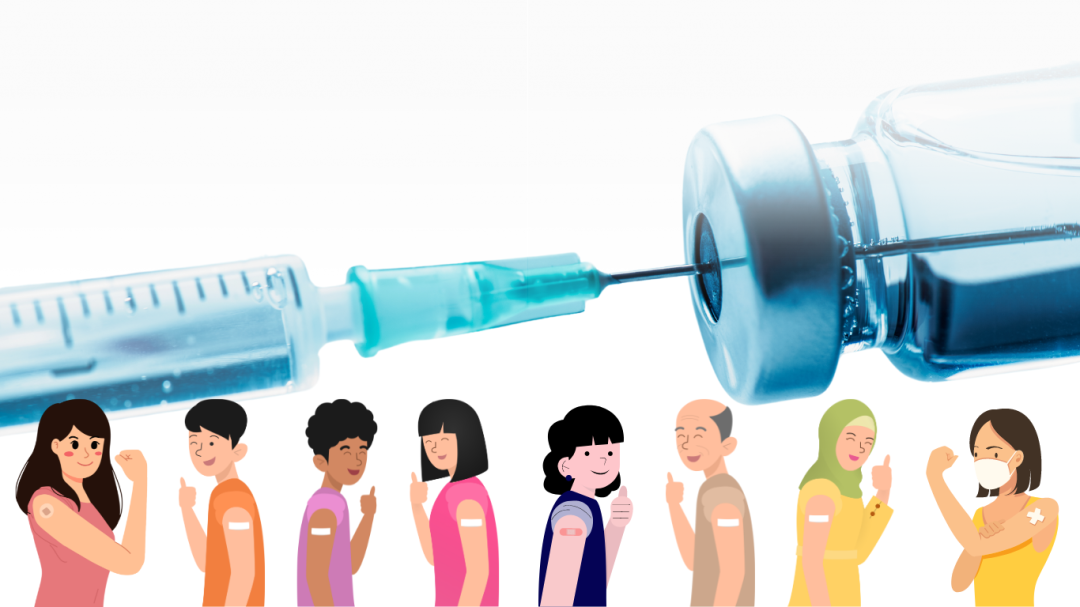By: Heidi Li
August marks National Immunization Awareness Month (NIAM), a time dedicated to highlighting the crucial role vaccines play in safeguarding our health. While vaccines are often associated with childhood immunizations, they hold significant importance for people of all ages for fighting against infectious disease and other diseases like cancer.
Cancer immunization, also known as cancer vaccination, is a powerful tool in cancer prevention. Unlike traditional vaccines that primarily target infectious diseases, cancer vaccines aim to stimulate the body’s immune system to recognize and destroy cancer cells.
One of the most well-known cancer vaccines is the human papillomavirus (HPV) vaccine. HPV is a common infection that can lead to various cancers, including cervical, anal, and oropharyngeal cancers. The HPV vaccine is highly effective in preventing HPV infection and reducing the risk of associated cancers. It is recommended for both boys and girls starting at age 11 or 12, with “catch-up” vaccinations available for older individuals who have not been vaccinated previously.
Another notable cancer vaccine is the hepatitis B vaccine. Chronic hepatitis B infection can increase the risk of liver cancer. Vaccination against hepatitis B is recommended for infants, adolescents, and adults at increased risk of infection, such as healthcare workers and individuals with certain medical conditions or lifestyle factors.
As the field of immunology and oncology advances, more and more vaccines are being developed under rigorous assessments. Some examples include vaccines targeting melanoma, HER2-positive breast cancer, and pancreatic cancer, which are being tested in clinical trials and are showing promise to enhance cancer treatment outcomes.
In recent years, breakthroughs in cancer immunotherapy have revolutionized cancer treatment. Immunotherapy works by harnessing the power of the immune system to target and destroy cancer cells. While not traditional vaccines in the preventive sense, immunotherapies like immune checkpoint inhibitors and CAR-T cell therapy are transforming the landscape of cancer care, offering new hope to patients with various types of cancer. For more information regarding immunotherapies in cancer treatment, check out our recent article: Unleashing the Immune System to Fight Against Cancer
Despite the tremendous progress in cancer immunization and treatment, there are still challenges to overcome. Vaccine hesitancy, misinformation, and access barriers continue to pose significant obstacles to achieving widespread immunization coverage. National Immunization Awareness Month serves as an opportunity to address these challenges and empower individuals to make informed decisions about their health.
As we observe NIAM this August, let us recognize the critical role of immunization in preventing not only infectious diseases but also certain types of cancer. By staying up to date on recommended vaccines and supporting efforts to improve vaccine access and education, we can all contribute to a healthier future free from the burden of preventable diseases, including cancer – let’s strive for a world where everyone has the opportunity to live a long and healthy life.
Author Bio
Heidi is a graduate student in the M.H.Sc Medical Genomics program at the University of Toronto. She has been interested in precision oncology, computational biology, and clinical microbiology, and she hopes to contribute to the interdisciplinary field of genomic analysis with a specialization in pathogen genomic surveillance in the future.
References:
CDC. Human Papillomavirus (HPV). Human Papillomavirus (HPV) https://www.cdc.gov/hpv/index.html (2024).
Cervical cancer. https://www.who.int/news-room/fact-sheets/detail/cervical-cancer.
Prevention » Hepatitis B Foundation. https://www.hepb.org/research-and-programs/liver/prevention-of-liver-cancer/#:~:text=The%20Hepatitis%20B%20Vaccine%3A%20World’s,by%20the%20hepatitis%20B%20virus.
Wang, X. Assessment of feasibility of mRNA vaccines for cancer treatment. TNS 33, 161–165 (2024).
An mRNA vaccine to treat pancreatic cancer. National Institutes of Health (NIH) https://www.nih.gov/news-events/nih-research-matters/mrna-vaccine-treat-pancreatic-cancer (2023).
